
April 3rd, 2024, Bangkok
The Ministry of Higher Education, Science, Research and Innovation (MHESI), through the National Science and Technology Development Agency (NSTDA), announced the launch of three projects funded by the Lancang-Mekong Cooperation Special Fund (LMCSF), supported by the People’s Republic of China. The initiative aims to disseminate information to all stakeholders and forge new partnerships to amplify project impact. These projects include the technology transfer and value addition of edible mushrooms, sustainable cassava production, and standards for high-speed rail products. The event was jointly launched by Prof. Dr. Sukit Limpijumnong, Director of NSTDA, and Mr. Ma Minggeng, Science and Technology Advisor at the Embassy of the People’s Republic of China in Thailand. Researchers on the projects and stakeholders representing diverse sectors attended the event.

Professor Dr. Sukit Limpijumnong, Director of NSTDA, disclosed that “in 2023, NSTDA received funding for three projects from the Lancang-Mekong Cooperation Special Fund (LMCSF). Two of these projects are managed by the National Center for Genetic Engineering and Biotechnology (BIOTEC) of NSTDA. These include a project on technology transfer and knowledge exchange about edible mushrooms for economic and sustainable agricultural development among countries in the Mekong region and a project promoting sustainable cassava production using technology and innovation in the Mekong region. The third project, managed by NSTDA’s National Metal and Materials Technology Center (MTEC), aims to strengthen domestic industries’ technological capacity and establish product standards that meet the requirements of the high-speed rail project. All three projects are supported by a budget from the 2023 Lancang-Mekong Cooperation Special Fund, provided by the People’s Republic of China, amounting to USD 734,092 (approximately 25,830,423 THB). Established in 2017 under the framework of Lancang-Mekong cooperation, the fund aids financial development assistance to the six Mekong countries: Cambodia, Laos, Myanmar, Thailand, Vietnam, and China, supporting medium and small-scale projects that promote development in the Mekong basin. The strong relationship between Thailand and China is evident in these collaborations. Thailand is a hub for technology transfer to the Mekong countries while benefiting from technology transfer and other cooperative activities from China.”
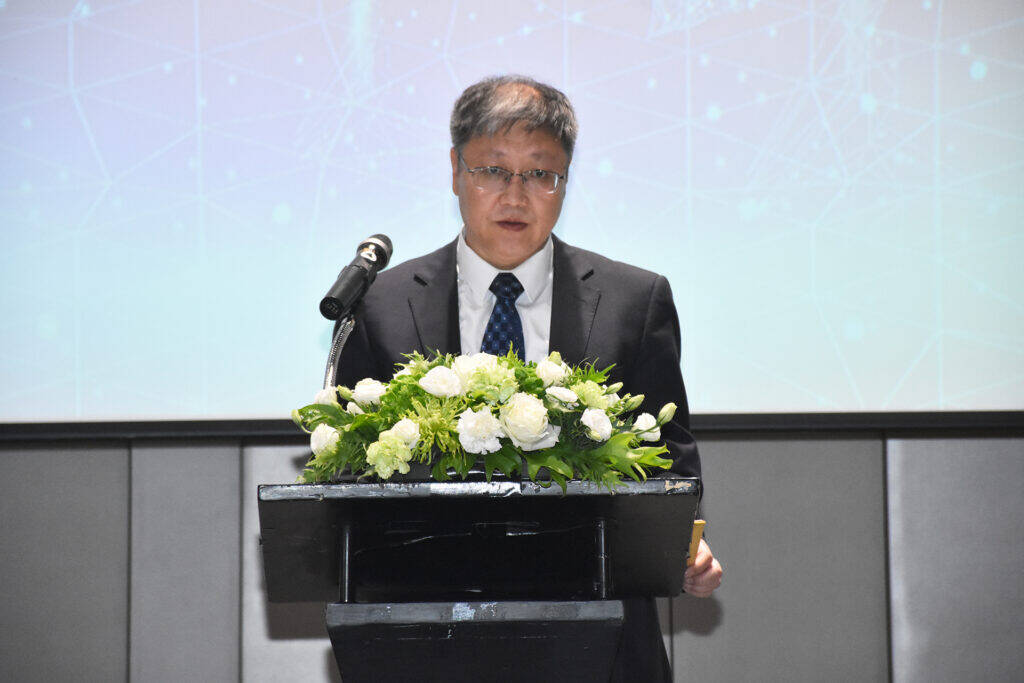
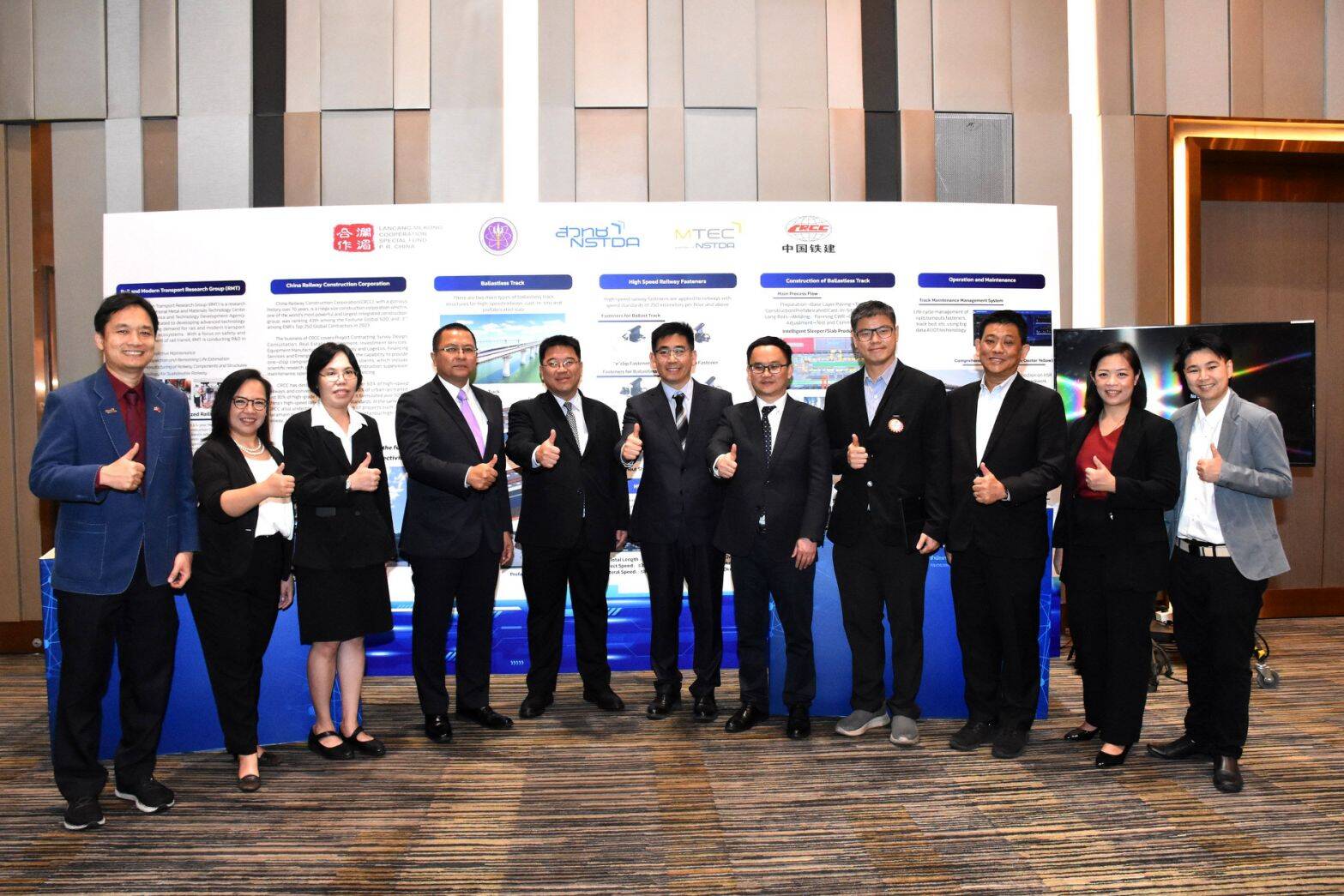
Mr. Ma Minggeng, Science and Technology Advisor at the Embassy of the People’s Republic of China in Thailand, congratulated NSTDA for securing funding for three projects. Thailand and the People’s Republic of China have signed a government-level scientific and technological cooperation agreement since 1978. For over 40 years, both governments have supported more than 1,000 scientific and technological projects. Since the launch of the Lancang-Mekong cooperation, the first regional collaboration mechanism, the goal has been to create a shared future community between China and the Mekong countries. These countries are at a critical juncture in accelerating development and recognizing technological advancements, necessitating a focus on cultivating new regional production capacities to boost the competitive advantage of industries. Over the past decade, Thailand has prioritized technological innovation significantly, serving as the country’s primary driving force. This is evident from Thailand’s development plans, including the Thailand 4.0 model, the BCG model, and goals to escape the middle-income trap through reliance on technological innovation.
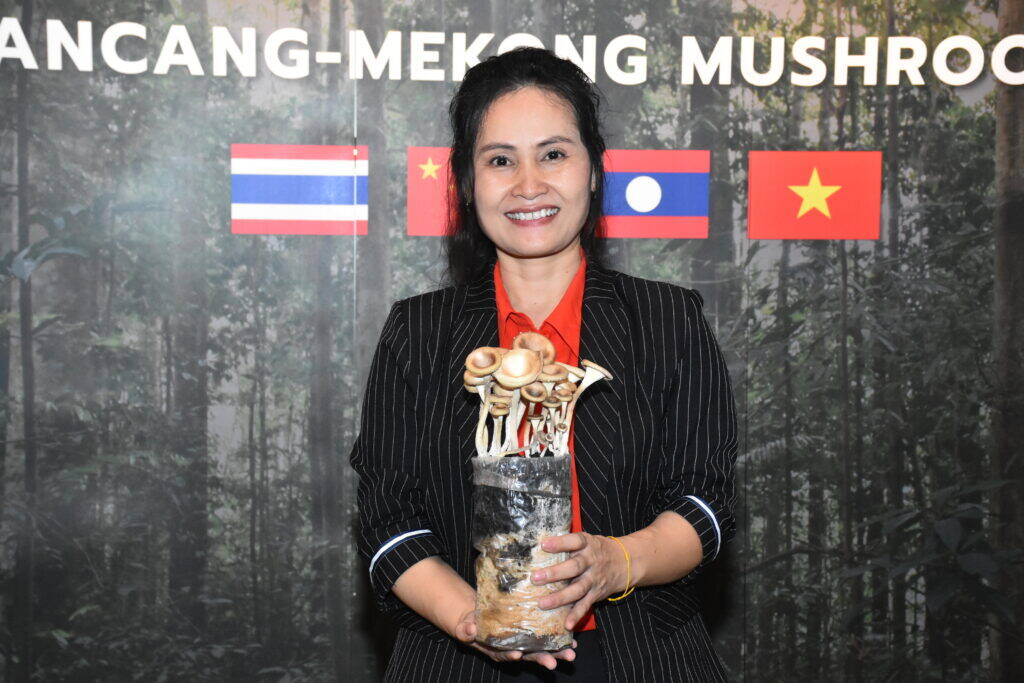
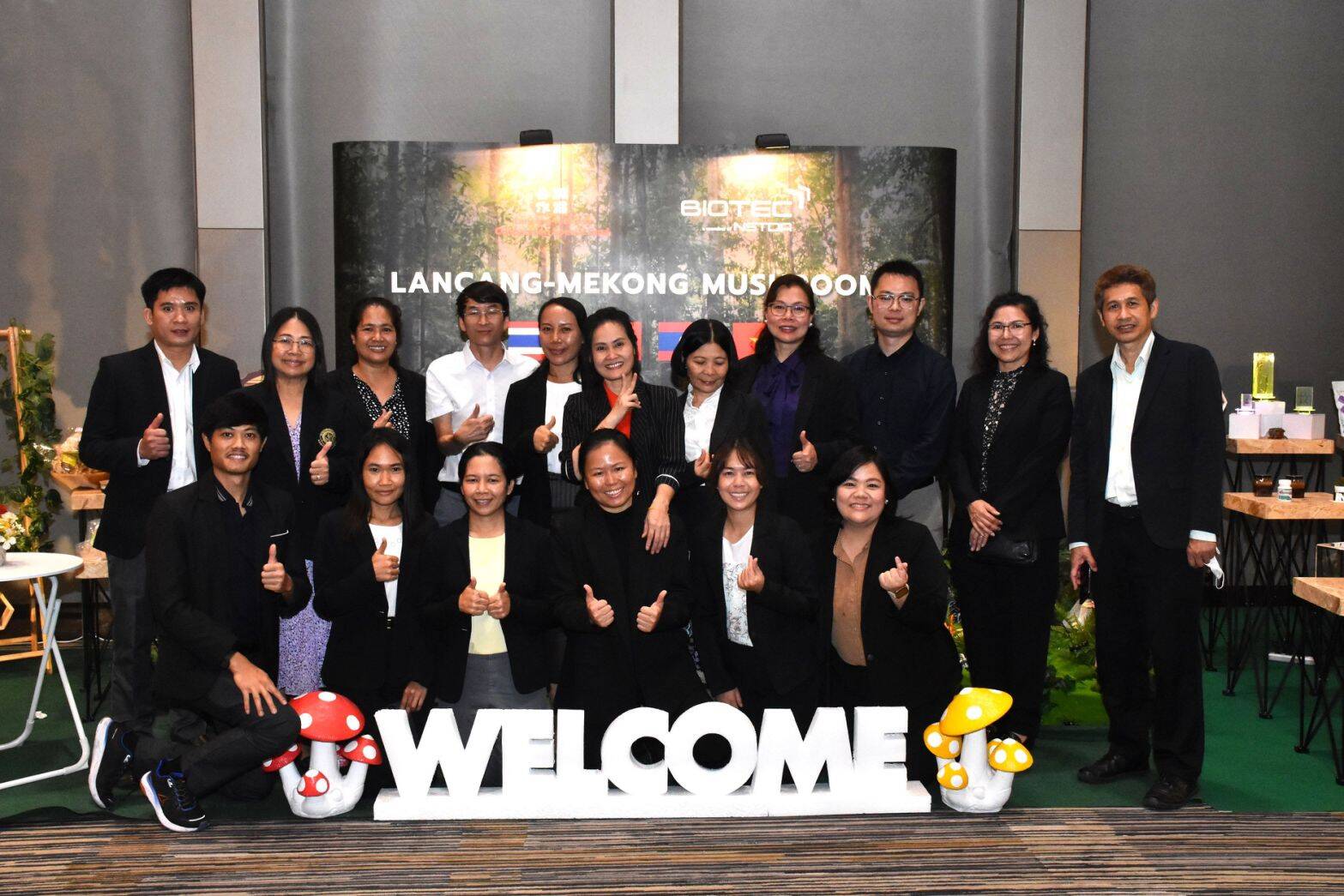
In the first project, Dr. Umpawa Pinruan, the project leader and a researcher in the Agricultural Microbial Interactions Team at BIOTEC, NSTDA, stated that the project on ‘Technology transfer and knowledge exchange on edible mushrooms for economic and sustainable agricultural development among countries in the Mekong region’ is funded with USD 258,059 (approximately 9,072,323 THB) for three years (2024-2027).
The project aims to leverage mushroom resources to improve the quality of life for people in Thailand and other Mekong region countries while promoting sustainable agricultural development and food security. Through cooperation and engagement, it seeks to foster relations between Thailand and its neighboring countries and enhance economic stability in the Mekong sub-region. The project will focus on research, development, and technology transfer related to consumable wild mushroom and Cordyceps resources found in each region. Focusing on identifying and developing new, cost-effective mushroom strains that can compete with imported varieties will open market opportunities. The project promotes environmentally friendly mushroom cultivation management and control processes by using water and energy efficiently in production and reducing or managing waste from the mushroom production process. It aims to develop value-added products from mushrooms and Cordyceps, employing unique cultivation methods with forest trees. This approach is expected to both increase wild mushrooms yields and provide food for rural communities. This sustainable forest management approach avoids deforestation while reducing the risk of accidental poisoning from consuming wild mushrooms. By transferring and exchanging knowledge, the project will strengthen the mushroom production industry and the development of mushroom and Cordyceps products, all while minimizing environmental impact. This project supports the expansion of forest cover and promotes environmental conservation throughout the Mekong River basin.

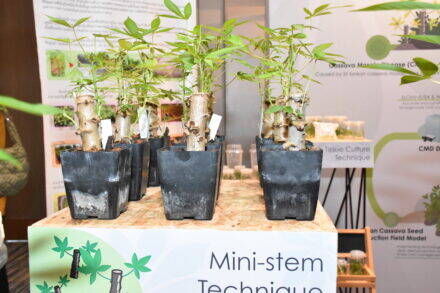
Dr. Saengsoon Charoenvilaisiri, project leader and researcher at the Monoclonal Antibody Production and Application Research Team at BIOTEC, NSTDA, stated that the project ‘Promotion of Sustainable Cassava Production in the Mekong Region through Dissemination of Cassava Mosaic Disease Diagnostic and Clean Cassava Seed Production Technologies’ is funded with USD 288,846 (approximately 10,161,603 THB) for a three-year period (2024-2027)
Cassava is a crucial cash crop for ASEAN countries, which are the world’s leading exporters of cassava products. However, in recent years, cassava growers have faced a severe crisis due to the widespread outbreak of cassava mosaic disease, resulting in reduced yield and quality and a shortage of clean cassava cuttings for planting. BIOTEC has developed technologies for producing high-quality clean cuttings to address the disease outbreak and the shortage of clean cuttings, enabling rapid mass production. These technologies include tissue culture and mini stem cutting techniques. Additionally, BIOTEC has developed diagnostic technologies for cassava mosaic disease intended for disease screening, producing clean plantings, and monitoring and surveillance of disease spread in fields. These technologies include the ELISA technique and the immunochromatographic strip test. BIOTEC has already initiated the transfer of these technologies to public and private entities in Thailand. Under this project, the research team will extend the application of clean cassava seed production and disease diagnostic technologies to achieve broader utilization in the Mekong region countries.
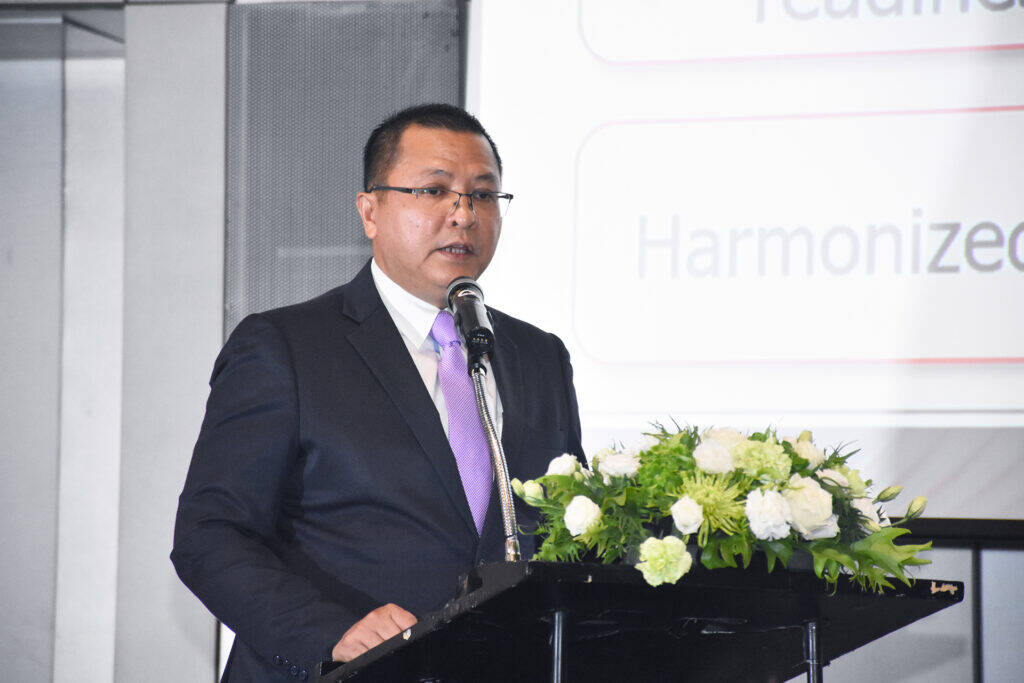
For the third project, Dr. Ekkarut Viyanit, Director of the Rail and Modern Transports Research Group at MTEC, NSTDA, stated that “the Technological Capability Enhancement of Local Industries and Product Standardization Initiative by High-speed Railway Project Requirements project has received funding amounting to USD 187,187 (approximately 6,596,497 THB) for two years (2024-2026).”
There is a skills gap in the Lancang-Mekong region’s education, research, development, and industrial sectors when it comes to developing high-standard products for high-speed railway infrastructure. Limited experience in producing high-standard components for high-speed rail projects restricts local industries’ participation in the supply chain.


The research team pinpointed areas needing improvement. They propose initiatives that establish frameworks benefiting both parties. Technological advancements within the industrial sectors of countries embarking on high-speed rail projects are the initial thrust of this initiative. Such actions will contribute to long-term economic and social sustainability in the Lancang-Mekong countries. The project will also involve developing local industry standards for high-speed railway projects. These standards will then be submitted to national agencies for consideration in the certification process for Thailand’s high-speed railway projects. This initiative’s reach will expand in the future to include knowledge transfer to neighboring countries undertaking high-speed railway projects. The success of these initiatives hinges on cooperation with entities in the People’s Republic of China, which boasts nearly 30 years of experience in operating high-speed railways and fostering related industries.



